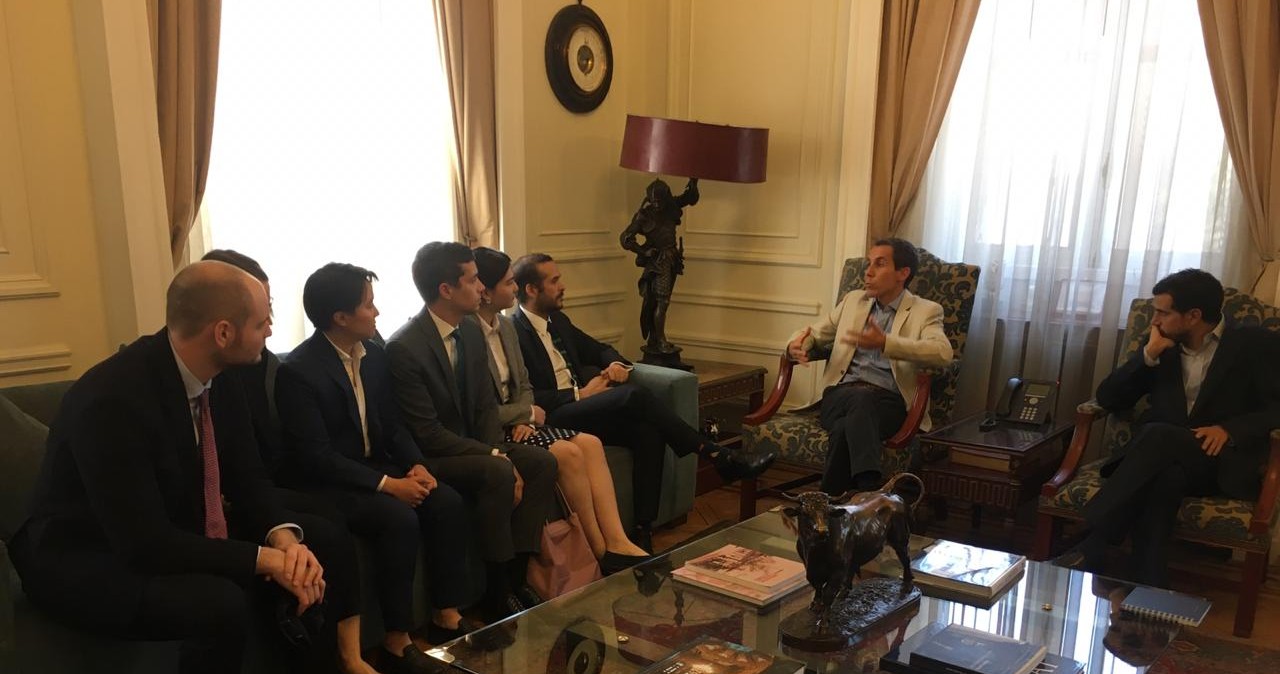SIPA Capstone Team Collaborates in Improving Revenue Collection for Santiago Municipality

Six master's students from Columbia’s School of International and Public Affairs (SIPA) wrapped up a four-month project and presented their findings for the Municipality of Santiago, Chile’s capital, to improve efficiency in the revenue collection process.
As part of SIPA’s Capstone workshop, the students in New York held weekly online meetings with municipal officials in Santiago, carrying out exhaustive diagnosis of the business permit revenue collection processes in order to develop a practical roadmap of enhancements the Municipality could implement. Throughout the process, the team engaged with the Municipality’s legal, planning, finance and IT departments as well as with national officials from the Territorial Development Secretariat (SUBDERE) and the Internal Revenue Service (SII).
During March, the team traveled to Santiago to conduct weeklong field research to verify their analysis of municipal processes, interview officials and key teams in the process, learn about the work culture and participate as observers in the inspection process of business permits, which are the main source of financing for the Municipality.
The field research was key in helping the students to understand Santiago’s particular issues. These matters were considered when the team provided guidance to the most relevant and impactful best practices in the roadmap, which upon completion was delivered to Mayor Felipe Alessandri and team.
Andrew Quartuccio, one of the SIPA students, comment “the Capstone team had an extremely rewarding four months working alongside the Municipality of Santiago. The final report received high praise from the Chief of Staff to the Mayor and the Director of Administration and Finance, with many of its recommendations underway in time for the second semester of 2019.”
On the report, the Capstone team created a practical Roadmap that fits to the revenue collection timeline established by the Municipal Revenue Calendar. They recommend the first step is to create a cross-functional task force, which will act as the main agent to create the conditions for change and oversee the project conclusions. They also prioritized six Quick-Wins given their easiness to implement and benefits to the Municipality: Agree on revenue reporting calculation criteria; estimate revenue more precisely; segment payers by bill size; warn on non-payment penalty; put arrears in inspections app and; add inspectors’ data in a revenue database.
After the collection period, once all the Quick-Wins have been in place, the Municipality will be able to develop a data-driven inspection process to aid it in implementing improvements to the revenue collection process and arrears management. Finally, the last recommendations as -- Standardized reporting on Revenue; Improve Revenue Receivables; Incorporate management tools in Revenue Department; Establish predictive risk analytics; among others -- will require more human capital and more advanced technology applications further into the future, given the resources needed for training current and possibly additional employees.
Mayor Alessandri expressed his gratitude for the work done by the SIPA team, lauding the students’ “sharp insights and perspectives” as well as the “effort and generosity” dedicated to the project.
"The whole process has been a catalyst for internal discussions, new ideas and change for good,” he said. “We hope as a Municipality that this Capstone Project is the first of many others and that we can continue to work together with SIPA in the future."